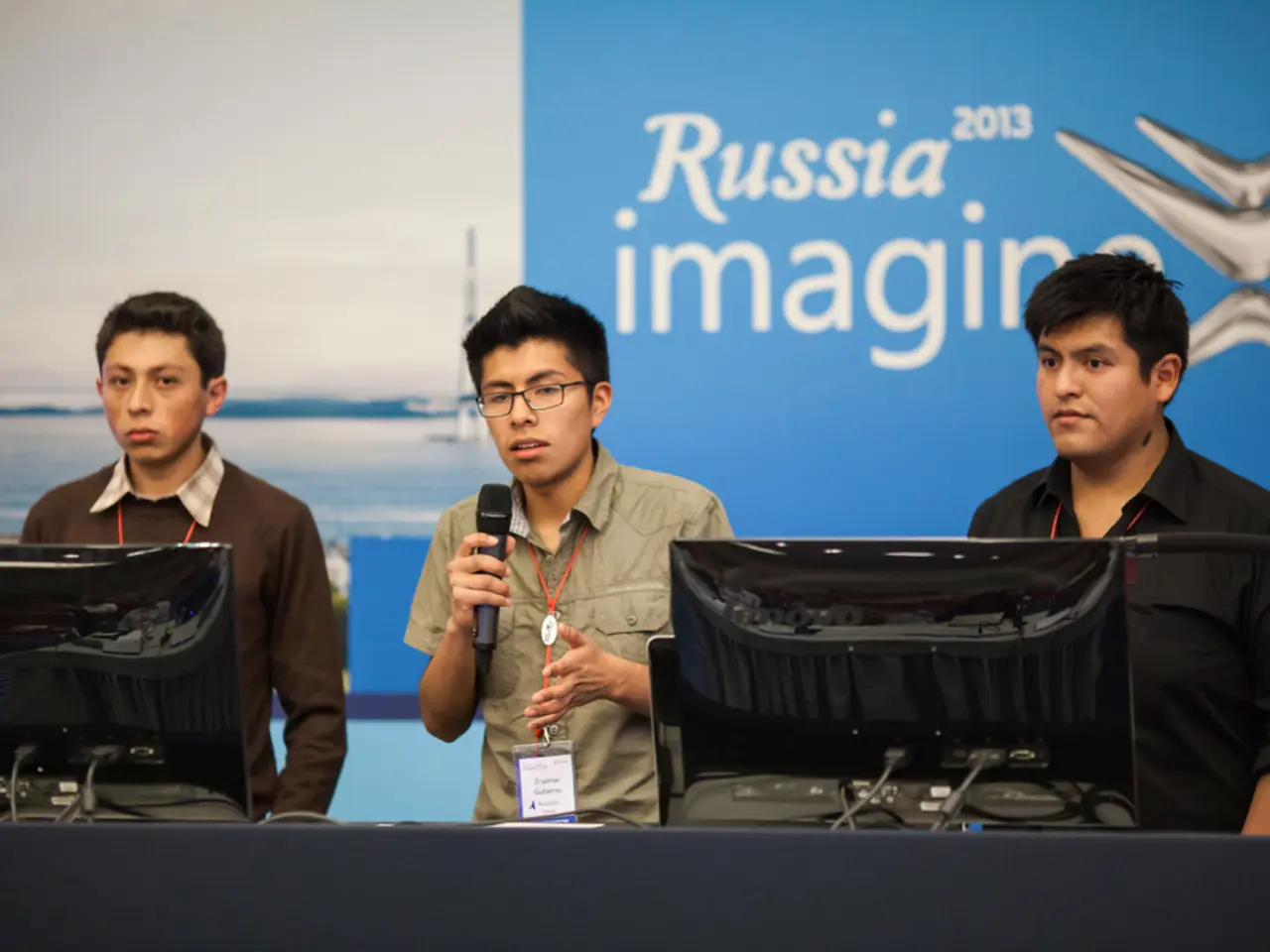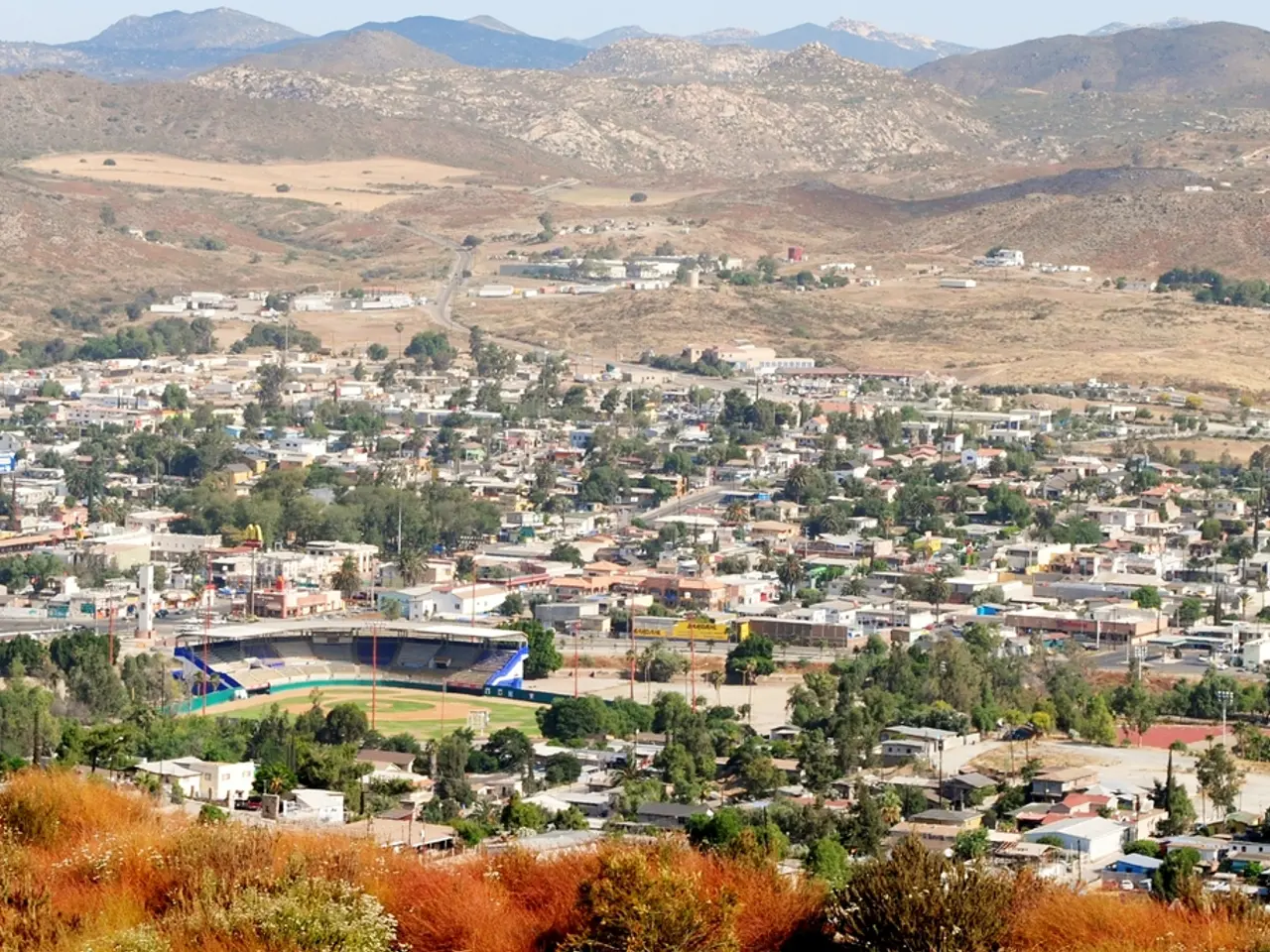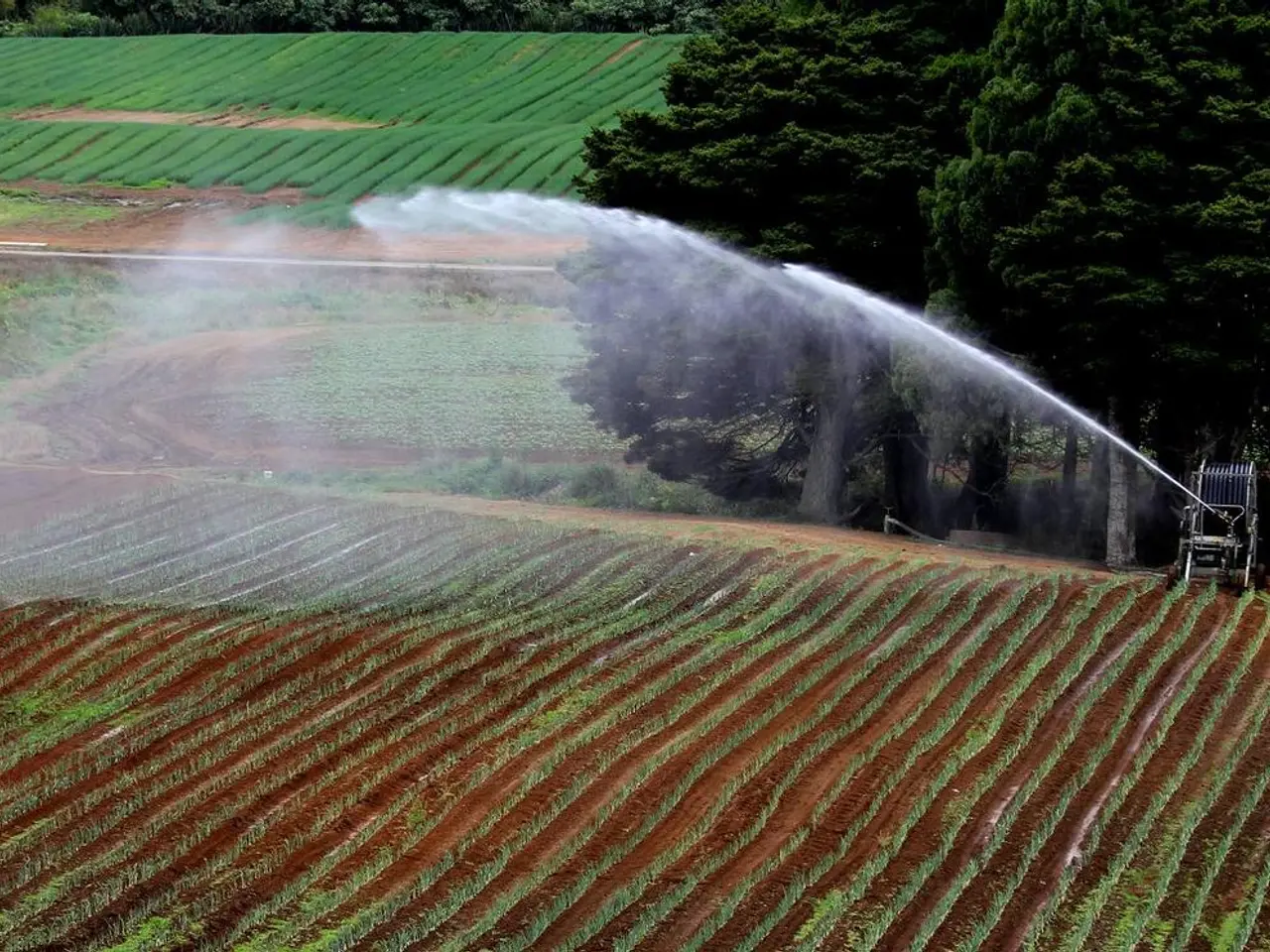Trump confirms Alaskan encounter with Putin scheduled for upcoming week
In a move that has sparked controversy, President Donald Trump and Russian President Vladimir Putin are set to meet next Friday, August 15, 2025, in Alaska, with a proposed peace deal on the table. The deal, which centres on a "swapping of territories," has raised concerns among Ukrainian officials and European leaders.
The proposed deal involves Russia demanding international legal recognition of its 2014 annexation of Crimea, as well as full control of four Ukrainian regions—Donetsk, Luhansk, Zaporizhzhia, and Kherson. Some of these regions, such as Donetsk and Luhansk, are partially controlled by Ukraine, while others, like Zaporizhzhia and Kherson, are still under Ukrainian control.
Putin has reportedly signalled some softening by limiting territorial demands to primarily the Donetsk region, but the details remain unclear and disputed. Ukraine's President Volodymyr Zelensky has quickly rejected the idea of territorial swaps, particularly ceding parts of Donetsk that they still control, viewing such concessions as unacceptable.
The Ukrainian government's absence from direct talks between Trump and Putin has heightened concerns about being sidelined in critical peace negotiations. European leaders and EU officials have expressed apprehension about the deal's framework, hoping to influence the U.S. to consider their perspective and warning against agreements that legitimize Russian territorial gains without robust security guarantees for Ukraine.
The prospect of Ukraine ceding any of its territory to Russia could prove a major stumbling block in negotiating an end to the war, as such concessions are against the Ukrainian constitution. The meeting comes after Trump had set a deadline for Putin to make peace or face severe economic punishment.
The peace deal proposal has alarmed some European officials, who voice concern it is Putin's attempt to avoid economic sanctions while offering little in return. The Kremlin's Presidential Aide Yury Ushakov confirmed the meeting in Alaska and revealed Russia has already invited Trump for a follow-up meeting in Russia.
Trump has acknowledged frustration with Putin in recent months for drawing out the conflict but seems more optimistic for a peace deal. He has stated that Putin doesn't have to meet with Zelensky as a prerequisite for a face-to-face meeting between Trump and Putin.
However, it's unclear how Putin's proposal would address his other demands for ending the war, including a pledge that Ukraine never join NATO or that it limit the size of its military. The last time Putin met with a United States president was in June 2021, in Geneva, Switzerland, where he met with then-President Joe Biden. The meeting marks a major moment in the US president's relationship with Putin, who hasn't been to the US since 2015 and hasn't met with Trump since 2019.
Additional calls with European officials have occurred over the past two days, including with Trump's foreign envoy Steve Witkoff and Secretary of State Marco Rubio. The diplomatic implications of the proposed peace deal remain significant, with potential wins for Putin but unresolved conflict risks that remain.
References: [1] New York Times. (2025, August 10). Trump-Putin Meeting Sparks Controversy Over Proposed Peace Deal. Retrieved from https://www.nytimes.com/2025/08/10/world/europe/trump-putin-peace-deal.html [2] BBC News. (2025, August 11). Ukraine Rejects Territorial Swaps in Proposed Peace Deal. Retrieved from https://www.bbc.co.uk/news/world-europe-58927562
- Amidst the ongoing general news and war-and-conflicts in Ukraine, the proposed peace deal between President Trump and President Putin has raised concerns in both Ukrainian officials and European leaders, as it involves Russia demanding territorial swaps with Ukraine, particularly in the regions of Donetsk, Luhansk, Zaporizhzhia, and Kherson.
- The Ukrainian government's absence from direct talks between Trump and Putin has raised the question of whether politics is being swayed towards Russia, as the potential wins for Putin could legitimize Russian territorial gains without robust security guarantees for Ukraine within the context of international conflicts and general news.






